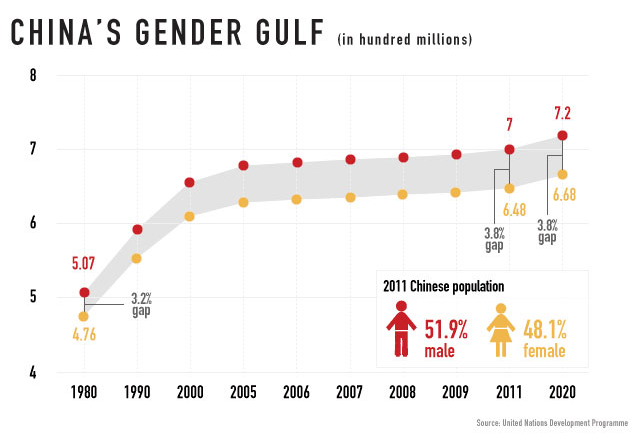The gender gap among newborn children continues to widen every year as Chinese parents pursue following the traditional preference for male babies.
In Shanghai, over 112 baby boys were born for every 100 baby girls in 2014.
In order to tackle this eminent problem, city health and population officials vowed to crack down on gender fetus tests which are illegal in China.
According to Shanghai Daily, this move was to improve registration of pregnancies as well as to reduce, if not to prevent, sex-selective abortions.
The report also revealed that the city aimed to have a 109.7 boys to 100 girls birth ratio, a far cry from the actual 112.2 boys to 100 girls recorded by the Shanghai Health and Family Planning Commission in 2013.
This was a much higher gap compared to the recorded birth proportion in 2013, where 109.6 boys were born for every 100 girls in the same year.
Among the city's communities, only the districts of Changning, Jing'an, Zhabei and Hongkou as well as the Chongming County were able to meet their goal.
Jing'an achieved the closest gap among gender ratios with 102.8 boys for every 100 girls; while the Fengxian and Songjiang Districts recorded the greatest imbalances among newborns, with 117.5 boys for every 100 girls and 117.5 to 100, respectively.
To fix this dilemma, the city's health and family planning commission released an order to improve pregnancy registration and reporting.
Aside from this, they have mandated for a sterner sex-selective abortion regulation while focusing their attention more on the districts which were not able to meet their gender-ratio goals.



























